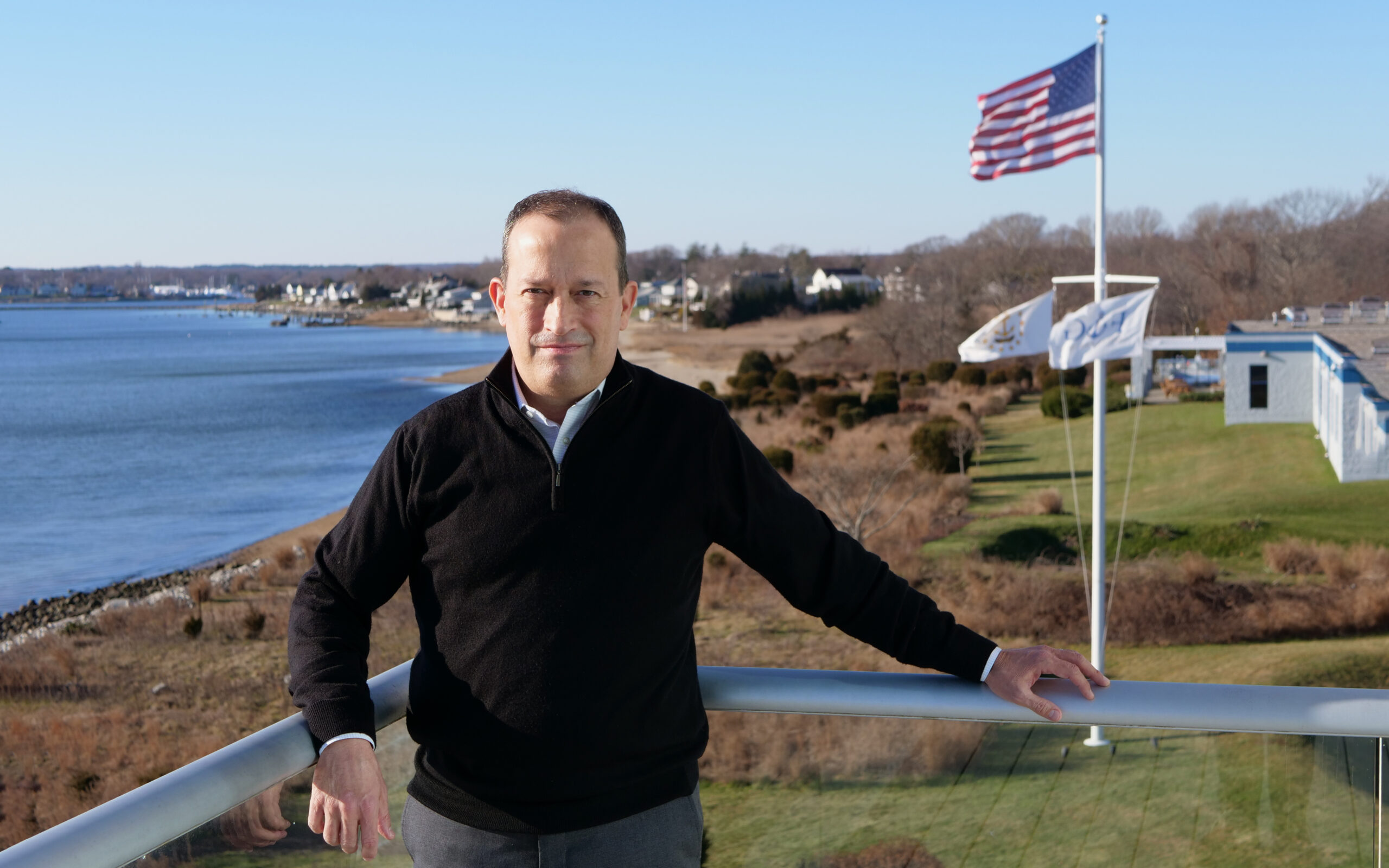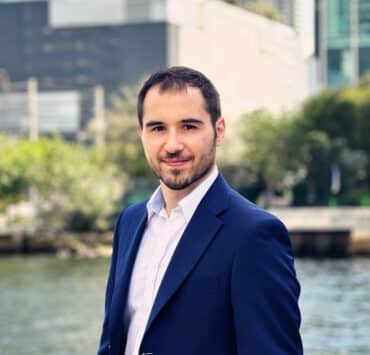|
Getting your Trinity Audio player ready...
|
From the age of sixteen, Benjamin Martinez had his education mapped out: He’d get an undergraduate degree in economics and, after that, go on to get an MBA. Inevitably, Martinez did both. However, there was another piece to the puzzle that he didn’t plan for: an eleven-year stint in Europe.
While Martinez did get his economics degree, he also minored in Spanish and German. So, after graduating and beginning his career, a role at Fidelity Investments brought him to Germany. “I was with them in the US for about six years when a memo went around about the Luxembourg office. They needed three people who spoke German to come out for three months. Ninety people applied, and I was one of the fortunate three that got selected,” he explains.
However, for Martinez, now VP of group operations at Falvey Insurance Group, that three-month assignment turned into a full relocation. He went on to stay there for another five years, working across western and central Europe. “The offices where I worked had people from over fifteen different nationalities. Being able to connect with them and experience the different ways of looking at challenges and opportunities was incredible and contributes to how I approach similar situations today.”

But being abroad didn’t distract Martinez from his goal of getting an MBA, and after a couple of years of working in Luxembourg, he began applying to schools. When he let his boss at Fidelity know, however, a point was raised: why not apply to programs in Europe, and continue working?
“I had done my homework. I knew that the University of Chicago had an executive MBA program that, at that time, was based in Barcelona. So, I said to him, ‘I tell you what, if I can get into that program, I’ll stay.’” Sure enough, Martinez got in.
“At one point I realized that I was an American living in Germany, working in Luxembourg, and going to school in Spain,” he says. Commuting across the Germany-Luxembourg border each day for work, traveling across Europe regularly, and working full time while going to school, he wonders how he was able to do it all. “In the end, I made it work. For me, the most effective method was calendaring everything—all the way down to chapters in my textbook,” he says.
From there, Martinez went on to work for a Luxembourg bank, marketing and selling its custody and fund administration services, and, later, for a British mutual fund company, helping to strategically build their distribution in countries across Europe. After stints with additional mutual funds and insurance entities, he got into contact with Falvey, an insurance group that specializes in supply chain coverage.
“At one point I realized that I was an American living in Germany, working in Luxembourg, and going to school in Spain.”
Benjamin Martinez
“For me it was a great opportunity to diversify my financial services background, knowledge, and experience in an all-new sector. The supply chain was a sub-sector that I had not yet had experience in, but I found it fascinating,” the VP explains. The niche has not only grown his knowledge in the field, but has allowed the company, which was founded in the 1990s, to thrive into the present day.
“Especially in the last few years, our growth has accelerated and that’s because insurance companies trust us. We build our technology in house, and that’s resulted in a level of knowledge of the industry that carriers just don’t have. Therefore, they delegate underwriting authority to us, and that’s a big part of our business model,” he explains.
As the vice president of group operations, Martinez utilizes his cross-functional skill set to bring teams together and drive collaboration. In doing so, they coordinate key initiatives around annual business planning, scaling the company’s growth through the implementation of new technology and automation, and identifying potential business lines.
A vital way in which he has succeeded in facilitating this type of cross-functional collaboration is through the development of an informal internal consulting team. “Very early on I saw certain individuals; the way they communicated, the level, breadth, and even depth of knowledge that they had of the business, of the company, and of our processes and I thought, ‘That is gold—I need to harness that,’” he reflects.
“The offices where I worked had people from over fifteen different nationalities. Being able to connect with them and experience the different ways of looking at challenges and opportunities was incredible and contributes to how I approach similar situations today.”
Benjamin Martinez
As a part of the internal consulting team, members still maintain full-time responsibilities as leaders of their associated departments. However, they also come together to facilitate discussions and brainstorm effective solutions for the challenges that other teams may be facing—a process that, due to the mindset of the consulting team, tends to happen organically.
“The culture of this team was already there,” Martinez says. “They were already curious, they were already collaborative, they were already open to respectful debate, and they were inclusive, it just needed to be brought together.”

